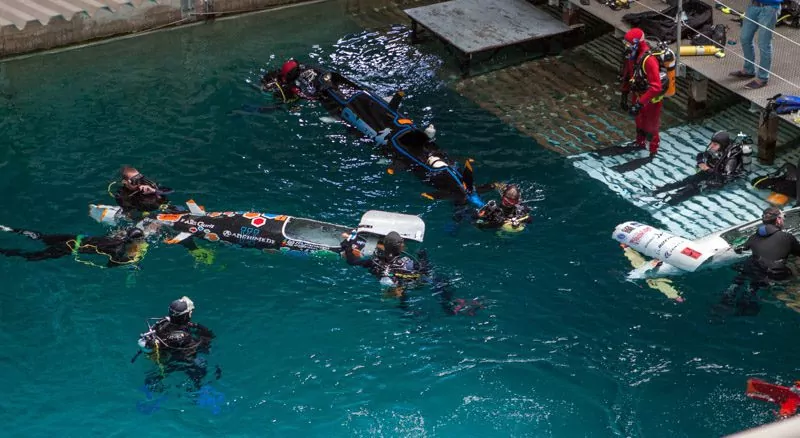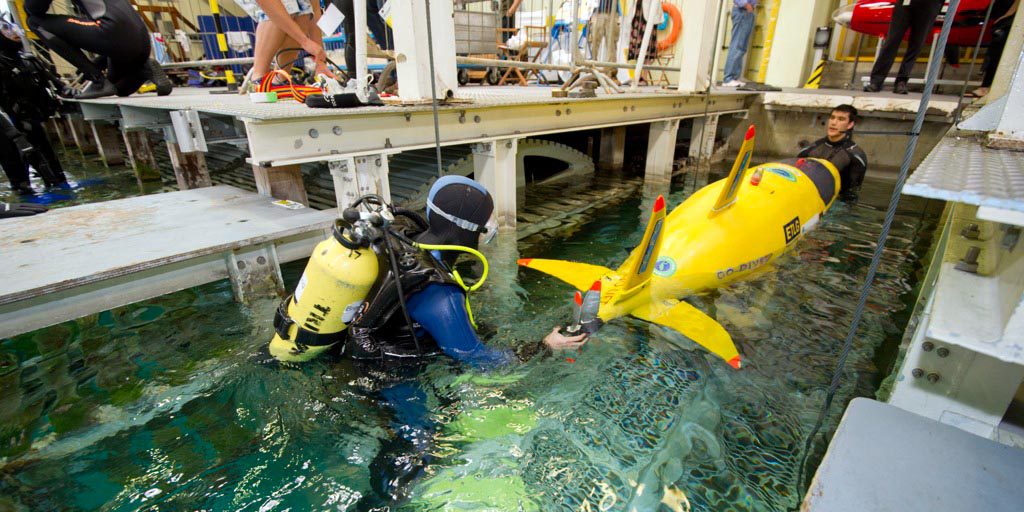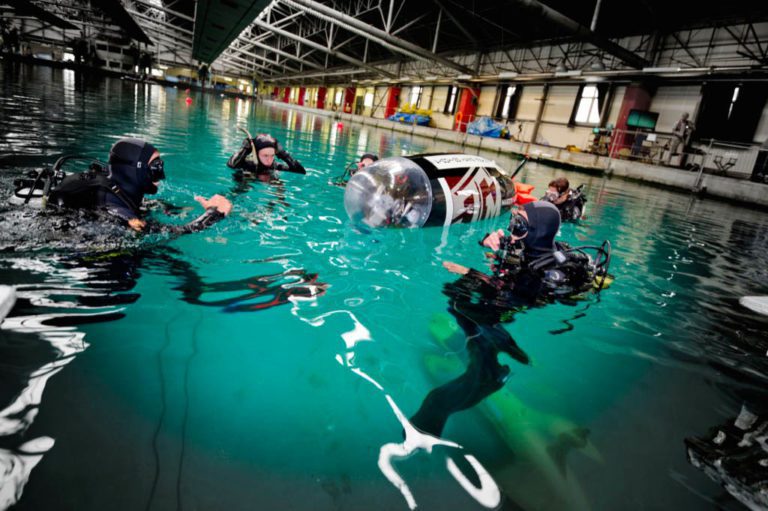Human-powered submarine racing returns to Gosport in Hampshire from 4-15 July, following a hiatus in the annual European International Submarine Races (eISR) competitions caused by the Covid-19 pandemic.
Teams of university students who started preparing their underwater craft for the postponed 2020 event are finally getting the chance to put their submarines through their paces.
Competitors are expected to use their design and technical skills to invent, build and race human-powered submarines against the clock, breathing on open-circuit scuba while negotiating the out-and-back underwater slalom course.
The competition is hosted by British defence technology company QinetiQ at its 122m Ocean Basin test pool, Europe’s largest freshwater tank. Co-organiser the Institute of Marine Engineering, Science & Technology (IMarEST) says that the event forms part of its work “to promote the marine sector, support young people and demonstrate to the world that engineering is fun”.

“It’s a fantastic competition that encourages and creates a community of students who grow into successful career scientists and engineers,” says race director Prof William Megill. “The challenge produces well-trained underwater engineers who know how to keep the water out of their machines and have learned how to work as a team under pressure.”
As well as daily race winners, there are 17 awards such as Best Design Report, Most Unusual Design, Most Dramatic Event and Best Non-Propellor, as well as awards for perseverance, exploration, reliability and individual awards for speed. In line with the UN Ocean Decade, a new award is being given for Best Vision for the Decade.

“The winning teams manufacture their machine to the highest standards, then tune it to the athlete doing the piloting,” says Prof Megill. “When they get to the races they’re organised, with each team-member well-trained in their role, and they have the flexibility in the team structure to adapt to the challenges that inevitably appear during the course of the race.
“Speed is definitely a key factor, but so is control. A fast sub that gets lost or brings the slalom gates with it to the finishing line is not going to do well overall!”
The eISR event is not open to the public this year but can be followed on Facebook.

